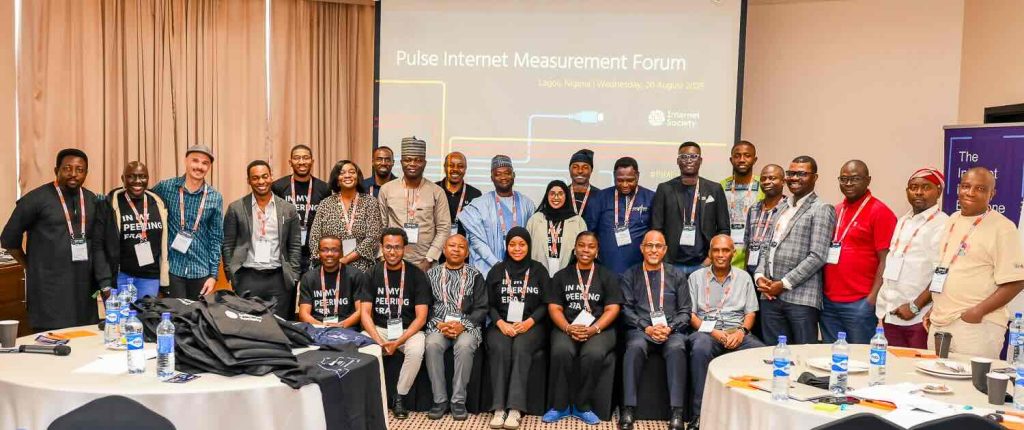Nigeria’s Path to Internet Resilience: Challenges and Collaborative Opportunities

Nigeria’s Role as a Tech Powerhouse in Africa
As Africa’s most populous country and the largest economy in West Africa, Nigeria is poised to lead the region in ICT advancements. Despite its potential, the country faces numerous challenges in bolstering Internet resilience, a topic recently highlighted during the Internet Society’s Pulse Internet Measurement Forum events in Lagos. These events, held alongside the African Peering and Interconnection Forum, provided a platform for stakeholders from public, private, and civil society sectors to discuss crucial issues affecting Nigeria’s digital infrastructure and development opportunities.
Fibre Cable Cuts: A Growing Concern for Nigeria’s Internet Infrastructure
One of the most concerning challenges facing Nigeria’s Internet landscape is the alarming number of fibre cable cuts. Between January 2024 and June 2025, the nation’s leading Internet Service Provider (ISP), MTN Nigeria, reported a staggering 13,700 cuts—equivalent to 25 per day. This issue led to approximately USD 11.4 million in losses for the company in 2024 alone, with sabotage and road construction accounting for 69% of these disruptions. These alarming statistics underscore the importance of leveraging data as a fundamental tool for advocacy and decision-making. By making such data publicly accessible, stakeholders can collaborate effectively to address infrastructure vulnerabilities and track progress over time.
The discussions at the Internet Measurement Forum emphasized that resolving this issue requires not only technical solutions but also community engagement and policy support. Greater awareness of the value of maintaining and protecting critical Internet infrastructure can significantly enhance Nigeria’s ability to meet its ambitious 70% fixed broadband penetration target by 2025—a goal that currently appears out of reach if cable disruptions persist at this rate.
Market Competition and Its Impact on Internet Resilience
Nigeria’s Internet market is dominated heavily by MTN, which holds over 60% market share. While MTN has made remarkable strides in connecting approximately 80 million Internet users, this monopoly has also stifled competition. A lack of competitive ISPs prevents accelerated innovation, reduces the incentive to improve service quality, and impacts the country’s overall Internet performance. According to Ookla’s July 2025 Speedtest Global Index, Nigeria ranks 84th globally for mobile broadband speeds and 127th for fixed broadband speeds, painting a concerning picture of the digital divide.
Moreover, market concentration amplifies the effects of outages caused by infrastructure damages or malicious activities. In comparison, countries with diversified ISP markets enjoy better resilience and pricing frameworks. The insights from Nigeria’s case studies align with trends seen globally, where nearly 50% of countries are categorized as having ‘Very Poor’ ISP market competition ratings. However, examples from countries like Iraq, Myanmar, and Venezuela demonstrate that it is possible to improve competition and infrastructure efficiency within a relatively short period.
Collaboration and Community-Centric Solutions
Addressing Nigeria’s Internet challenges requires a collaborative, multi-stakeholder approach. During the workshops, participants emphasized the importance of engaging with local communities to better understand their specific connectivity needs. Whether enabling access to e-commerce platforms, e-government services, online education, or telehealth, a bottom-up approach can foster adoption and sustainable infrastructure maintenance. Notably, educating communities about the importance of maintaining networks and protecting infrastructure is key to reducing unintentional disruptions.
Another critical factor is the adoption of standardized practices, such as the Open Fibre Data Standard. This ensures the creation of comprehensive maps detailing fibre cable locations, thereby reducing accidental damage during construction work. MTN’s Chief Technical Officer, Yahaya Ibrahim, highlighted the company’s efforts to comply with government regulations and share critical data about cable placements. Such practices, when standardized and widely adopted, can significantly enhance Internet resilience by bridging gaps between policymakers, ISPs, and local communities.
The Way Forward: Building a Resilient Digital Future
Nigeria’s journey toward becoming a leader in ICT and Internet resilience in Africa will require coordinated efforts from all sectors. Collaboration among stakeholders, informed policymaking, data standardization, and community awareness are essential components of a long-term strategy. By addressing its systemic challenges and fostering market competition, Nigeria can transform its Internet landscape and ensure reliable, resilient connectivity for its citizens.
As discussions at the Internet Society’s events revealed, the path to robust Internet infrastructure lies in holistic strategies that prioritize both technological advancements and user-centric solutions. Countries facing similar challenges can draw inspiration from Nigeria’s experiences to build sustainable, inclusive, and enduring Internet ecosystems.




